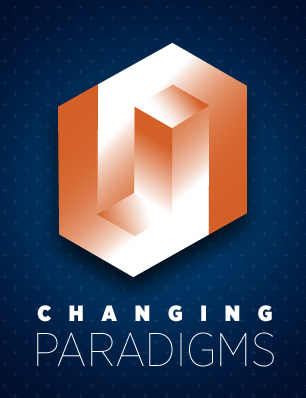Changing Paradigms in Corporate Training
 We’ve all experienced it: You buy a new car and suddenly you see the same model all around you. It’s not that everyone bought the car at the same time, of course—it’s that you’re now tuned in to something that was happening already. Similarly, here at Allen, we’ve begun to see common themes across our partnerships, and we’ve started to notice important shifts in the industry.
We’ve all experienced it: You buy a new car and suddenly you see the same model all around you. It’s not that everyone bought the car at the same time, of course—it’s that you’re now tuned in to something that was happening already. Similarly, here at Allen, we’ve begun to see common themes across our partnerships, and we’ve started to notice important shifts in the industry.
To us, 2013 has become the year of the needs analysis and consumer education. In the first six months of 2013, we’ve seen a 300% increase in these projects. Specifically, organizations are investing as never before in research to better understand how consumers and learners are gathering information and what influences are compelling their decisions. These new approaches, or maybe we should call them paradigm shifts for our partners, recognize that the vehicle an organization uses to understand and disseminate information to its audience affects how that audience behaves. It’s not just a question of knowledge or skills—it’s more fundamental than that.
In calling this trend a paradigm shift, we should start by admitting that we’re using the term in a less rigorous fashion then Thomas Kuhn does in his foundational work on paradigms in The Structure of Scientific Revolutions. (There, Kuhn argues that a paradigm shift doesn’t evolve out of its predecessors, but instead replaces them in a new and surprising way.) But even if we adapt a slightly more open definition here, we have to admit that learning and analysis are changing rapidly, and in ways we can’t always anticipate. For example, consider the Khan Academy model, or the way the flipped classroom is changing the traditional instructor-centric models for the better.
Of course, as society adopts new types of technology, training professionals must evolve to leverage these new toolsets. And, it’s tempting to say, as a result of these new technologies, that the learners themselves are fundamentally different. But is that really true? Is it the learners themselves who are driving these new paradigms? Put another way, if you are a boomer do you inherently learn differently than a millennial? After analyzing Millennials, I believe that technology adoption trumps generation gaps. That is, whether you are 40 or 14, with the right immersion and instructional design, you can harness new technologies to advance learning. As a result, the changing paradigm that we see, while influenced by technology, goes much deeper.
If we look at this same issue playing out in another field, we see that this paradigm shift isn’t too far removed from what’s occurring in buying and purchasing. In the past 15 years or so, the factors that influence consumer buying decisions have drastically shifted, in large part due to the way we share and disseminate information. (For example, when is the last time you made a major purchase without consulting user reviews online?) These market and knowledge domain changes are critical influences on how we engage in not only buying, but in formal training, and ultimately the roles we play in and out of our jobs.
We at Allen believe these new paradigms in audience analysis and learner support systems will continue to strengthen in the next few years, for the following reasons:
- Knowledge needs for even the most simplistic jobs are not adequately supported by traditional classroom-based learning. The way we consume (and expect) information in sites like YouTube, Lynda.com, search engines, and other just-in-time learning sources are beyond the confines that any teacher or established resource can provide.
- Whether we approve or not, the content we create has to compete and evolve at the speed of a Wikipedia page. We will, willingly or not, have to stop talking about corporate training shelf-life and instead look at the refresh rate of our content.
- Technology has far surpassed the current state of traditional education approaches. People like Salman Khan are just harbingers of doom for an outdated system that is trying to support learning at a new speed that it was never intended to meet.
Of course, not all of these changes deriving from these new paradigms will happen overnight. However, taking the longer view, we see these paradigms continuing to drive better, learner-centric approaches, while less effective models of education and training go the way of the guilds of old. For now, Allen and our training partners have a small but vital role to play. We’re excited about the opportunities to drive ongoing innovation and to support the new realities of where our employees seek information, as well as to learn from changes in how companies approach marketing, behavioral research, and analysis. It will open our eyes to new possibilities.






Comments 7
Here’s some reaction to Mr. Ron Zamir’s excellent blog entry focusing on paradigm change and the rapid increase in requests for needs analysis and other analytics that focus on workforce preparedness.
Some things to consider:
Traditional approaches to needs assessment based on interview, surveys and curriculum analysis are fine and provide input for decision making by leadership and for learning strategy to be devised and implemented by instructional designers. However, they also have the disadvantage of being slow to execute.
The Age of Big Data is upon us. Given new Web 2.0 technologies and new classifications of analytic tools that track the behavior of learners within learning products and produce automated reports of where they went, what they did and how much time they spent in the process, valuable data can be obtained from within the learning process that should be incorporated in the needs assessment data collection process. Another advantage associated with this “data from within” is that it is NOT attitude or belief based. These behaviors are tangible. Analytics use CRM science. Results based on actual needs and training behaviors play well in those C-Suites where employee attitudes and beliefs are discounted. In those where employee in put matters, so much the better.
The proliferation of webcasts both within companies and across the public Internet have grown at an enormous rate. These webcasts, with an average attendance of around 500 participants, largely leverage lecture-based pedagogical models. What if they were used instead as the basis for assessing knowledge and skill and leveraged as a means to rapidly obtain voice of customer and learner preference data? If a stratified, representative sample of a particular job role or workforce segment were used as the audience, the results would have statistical significance and could be used as a rapid needs assessment method.
New paradigm of communication afforded by Web 2.0 technologies and social media platforms is “many to many” communication. The “one to many” model of communication based on lecture hardly scratches the surface of what’s possible using these new technologies. If used appropriately, a new paradigm of webcasting could “break the back” of the lecture based webcast by moving the field forward towards new models of webcasting that are truly interactive, use gamification, and corporate “halls of recognition” and public scoreboards to inspire, engage, and recognize the contribution of individual learners, business segments and project teams within a company.
So, the growing need for more and better workforce analytics and needs assessment, the growth of Web 2.0 technologies and the resulting capability to attain “data from within” using E-learning products,” and the upcoming backlash against lecture-based webcasts provide opportunities to innovate. Innovation that drives both process improvement and the increased quality and reliability of the results attained. Yes, the learning function has a critical role to play in providing meaningful data that can be incorporated into the Big Data mindset of HR and workforce analytics. Learning products will need to be designed and delivered that provide data outputs that go far beyond test scores and Level 1-3 results. Needs assessment is the rationale for proceeding, but Big Data and meaningful workforce analytics are the endgame.
Fortunately, there are companies like Allan Communications that build learning products that contain true learning interactions like games, simulation and other performance enhancing learning activities. These interactions will become the basis for mining learner behaviors and attitudes going forward. As the new paradigm of big data continues to emerge and social media platforms continue to increase in their use and importance, a new paradigm for learning products will also emerge. Which design house will have the courage to lead the way forward at a time when workforce engagement is down and people are fearful of speaking “truth to authority”? Lecture may not be the most effective way to learn, but it is comparatively cheap and easy to understand. Damn the science and full speed ahead as we sip our cocktails and gleefully “check the box” for required training. Look to the mobile world and social media applications like Facebook and Twitter to lead the way forward in these new modalities of training. Learning and performance support integrated with personal timelines and easy to obtain “Likes” and Twitter interaction analysis.
“You may say I’m a dreamer, but I’m not the only one.
Someday, you may join us and the world will live as one.”
Imagine by John Lennon
The social forces that are fueled the proliferation of technology such as twitter, facebbook, yammer etc are amazing sources for knowledge and I really like your mention of Big Data. To some extent these analytics will influence the content we create but not as much of the basic design in my humble opinion. For ISD under any new Paradigm to change, you need to ask yourself if the basic model on how we acquire knowledge and what faculties both cognitive and kinetic we use to transfer such knowledge have been fundamentally impacted by the affordance we provide to these new technologies
I’m reminded again that creativity can often result from intersecting paradigms, world views, biases, etc. Putting learners in this creative space can be challenging—we want to challenge their framework(s) of understanding while also engaging them in a “language” to which they can relate.
I find the idea of defining that nature of paradigm shifts in the context of learning fascinating. This discussion makes me wonder whether we are on the verge of more evolutionary change–today’s learning technologies and strategies leading naturally into the next in progression–or whether the current shifts you highlight will lead to changes that are more fundamental and unpredictable. What will the next “YouTube”-level phenomenon be, as the speed of learning accelerates, for example? It will be very interesting to watch how these “better, learner-centric approaches” you mention take shape faster and faster in coming years.
I would reiterate that corporate training is one of the few areas were we can see what is coming down the pipe by looking at K-12 education. If is no secret that our industry was spawned out of the development of the US army and navy and for now I strongly recommend reading Salman Khan book The One World School House Education remained. The forces of accessibility and complexity are combining in ways unimagined a few years ago. The optimist in me believes that the next Einstein and Newton are in some grade school somewhere to push for a real Paradigm shift A la Khun.
http://www.amazon.com/The-One-World-Schoolhouse-Reimagined/dp/1455508381
nice blog…..thanks for sharing…!!!
also check Corporate trainer
Awsome Article